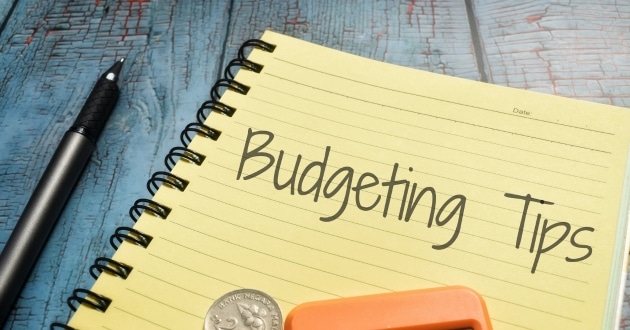Best budget financial tips UK can help you organize your finances and make your salary go further in the UK.
However, with so much information on the internet, it is difficult to know where to start to create an effective budget.
With that, the question remains. Which best budget financial tips in the UK really work? Whether it’s to save on grocery shopping, reduce utility bills. Or even to better manage your daily expenses. Choosing the right strategies completely changes your financial health.
In this article, we will see the best budget financial tips in the UK and help you understand how to apply these tips to build a more solid and peaceful financial future.
Why is Budgeting the Basis of Your Financial Success?

Budgeting doesn’t have to be a constraint.
On the contrary, he is your ally when it comes to controlling your finances. When you have a clear vision of where your money goes, it becomes much easier to make informed and intentional decisions.
Furthermore, a well-made budget frees up your mind, allowing you to consciously spend on the things that really matter. Whether it’s a special family dinner or a music subscription.
Best Budget Financial Tips in the UK

1. Prioritize the Payment of High-Interest Debts (Best Budget Financial Tips in the UK)
When it comes to personal finances, debt is one of the main difficulties.
In the UK, interest rates on credit cards and personal loans can be high, making it a difficult cycle to escape.
Therefore, the first tip is to prioritize the elimination of high-interest debts.
Start with credit cards, which have annual interest rates (APR) of more than 20%, and if possible, pay off as little as possible on other debts while focusing on paying off the most onerous. This will help reduce the total cost of debt over time.
Also, if you have debts with different types of priority, such as mortgage and rent, always pay the essential ones first.
Failure to pay priority debts can lead to serious consequences, such as the loss of the home or the disruption of essential services.
2. Create and Maintain a Realistic Budget
Creating a budget is the most important step when it comes to personal finance.
Start with an honest analysis of your net income. That is, what you actually earn after taxes and discounts.
With this number, it will be easier to identify how much you can spend in a healthy way and how much you need to save.
The key to effective budgeting is not to restrict what you do, but to be realistic about your priorities.
The 50/30/20 rule is a good baseline:
- 50% for essential needs (rent, bills),
- 30% for desires (entertainment, leisure);
- 20% for savings.
Use finance apps to track your expenses and compare with what you planned.
Don’t forget to review your budget regularly, especially if your financial situation changes, such as a salary increase or changes in fixed expenses.
If most of your spending is in the 50% range, you should look at how to save money on food shopping.
3. Build a Solid Emergency Fund (Best Budget Financial Tips in the UK)
Life is unpredictable, and, you can be caught off guard by unexpected expenses. For example, a car breakdown, a medical emergency, or even a job loss.
An emergency fund is essential to deal with these unforeseen events without resorting to credit.
The recommendation is to have the equivalent of three to six months of essential expenses (rent, food, basic services).
For many, this may seem like a difficult figure to achieve. But just start with small monthly deposits and be consistent.
When starting out, set a short-term goal, such as reaching £1,000 in the first three months.
Use easy-to-access savings accounts for the fund, so you can access it quickly if needed.
However, an emergency fund should not be used for impulsive purchases. It is insurance against the unexpected, helping to prevent your financial life from falling apart in the face of crises.
4. Automate Savings with Pay Yourself First
One of the main difficulties for most people is remembering to save.
Usually, savings are left for the end of the month, after all bills and expenses have already been paid.
The problem with this method is that often, there is nothing left.
To combat this, use the “pay yourself first” technique. Simply set up an automatic transfer, on the same day you receive your paycheck, to a savings account. By doing so, you ensure that you are putting a portion of your money aside before consumer temptations take over.
The best thing is that this practice creates a habit, and you don’t even have to think about it.
Over time, the cumulative impact of automatic savings can be staggering. If you can automate not only your savings, but also your contribution to retirement funds or other investments, your financial situation will be much healthier without extra effort on your part.
5. Review and Cancel Subscriptions You Don’t Use
Technology has made it easier than ever to subscribe to monthly services.
However, it also made it easier to forget the subscriptions we no longer use. Netflix, Spotify, delivery services, and even gyms can start to consume a good part of the budget without us realizing it.
The first step is to review your bank statements and credit card statements to identify any recurring subscriptions.
Then ask yourself, “Do I really need this service?”
Sometimes, the simple fact of canceling a streaming subscription or a magazine can save you a lot.
It’s also important to check if you’re still using music, education, or fitness apps.
Consider canceling or switching to cheaper plans whenever possible.
This review can be done quarterly to ensure that you are not paying for something unnecessary.
6. Optimize Your Residential Service Bills
In the UK, many people pay more than they would otherwise need for these services, simply because they don’t compare prices or don’t look for alternatives.
Start with switching suppliers. Platforms like uSwitch allow you to compare energy prices and internet services to find the most cost-effective option.
Also, adopt small changes in your routine. For instance:
- Unplug appliances when not in use, replace common light bulbs with LEDs.
- Lower the temperature of the thermostat in winter and take shorter showers.
These small changes add up to big savings in the long run.
Conclusion (Best Budget Financial Tips in the UK)
In summary, financial management in the United Kingdom, as in any part of the world, is an ongoing process that requires attention, planning, and patience.
Achieving financial stability is a journey that involves learning how to balance income and expenses, prioritize debt repayment, and take advantage of available savings and investment opportunities.
As you have seen, effective budgeting is not only a tool of control, but also of freedom, allowing you to make conscious decisions. And protect yourself against unforeseen events and build a more secure financial future.
By implementing the tips and strategies discussed, such as prioritizing the payment of high-interest debt, building an emergency fund, and optimizing your accounts, you will be creating a foundation for your financial health.
However, keep in mind that this path is dynamic, and financial habits should be adjusted over time as your circumstances change.
Finally, be patient with yourself. Every step you take towards a more balanced financial life is an investment in your well-being and your future.
The most important thing is to start and continue to make smart financial choices.
